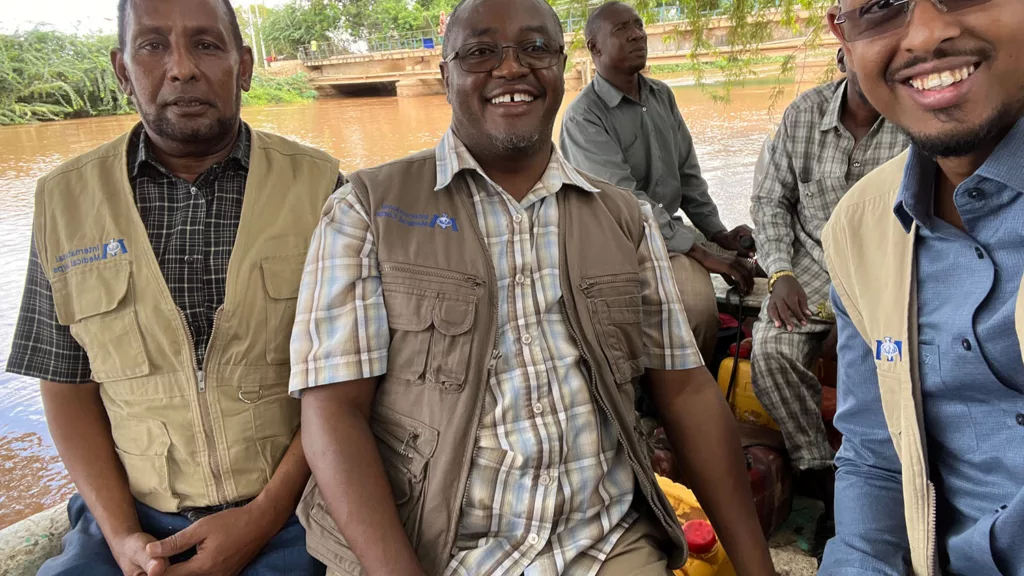Meet Njoroge Kamau, who was recently promoted to Country Director in Somalia.
How long have you been at International Medical Corps?
Seven years.
What is your background?
My undergraduate training was in public health, which forms the bulk of my career history. I also have graduate training in various fields, including global development and health systems strengthening and management.
What kind of work do you do in a typical day?
Before I was promoted to country director, I was Somalia’s deputy country director. In that role, my work fell into two main categories—fundraising and ensuring that the received funds are prudently used to put our interventions in place as promised to the donor, the government and the community. I also oversaw donor reports, to keep our funders apprised of what we do, as well keep the government and other stakeholders abreast of our implementation.
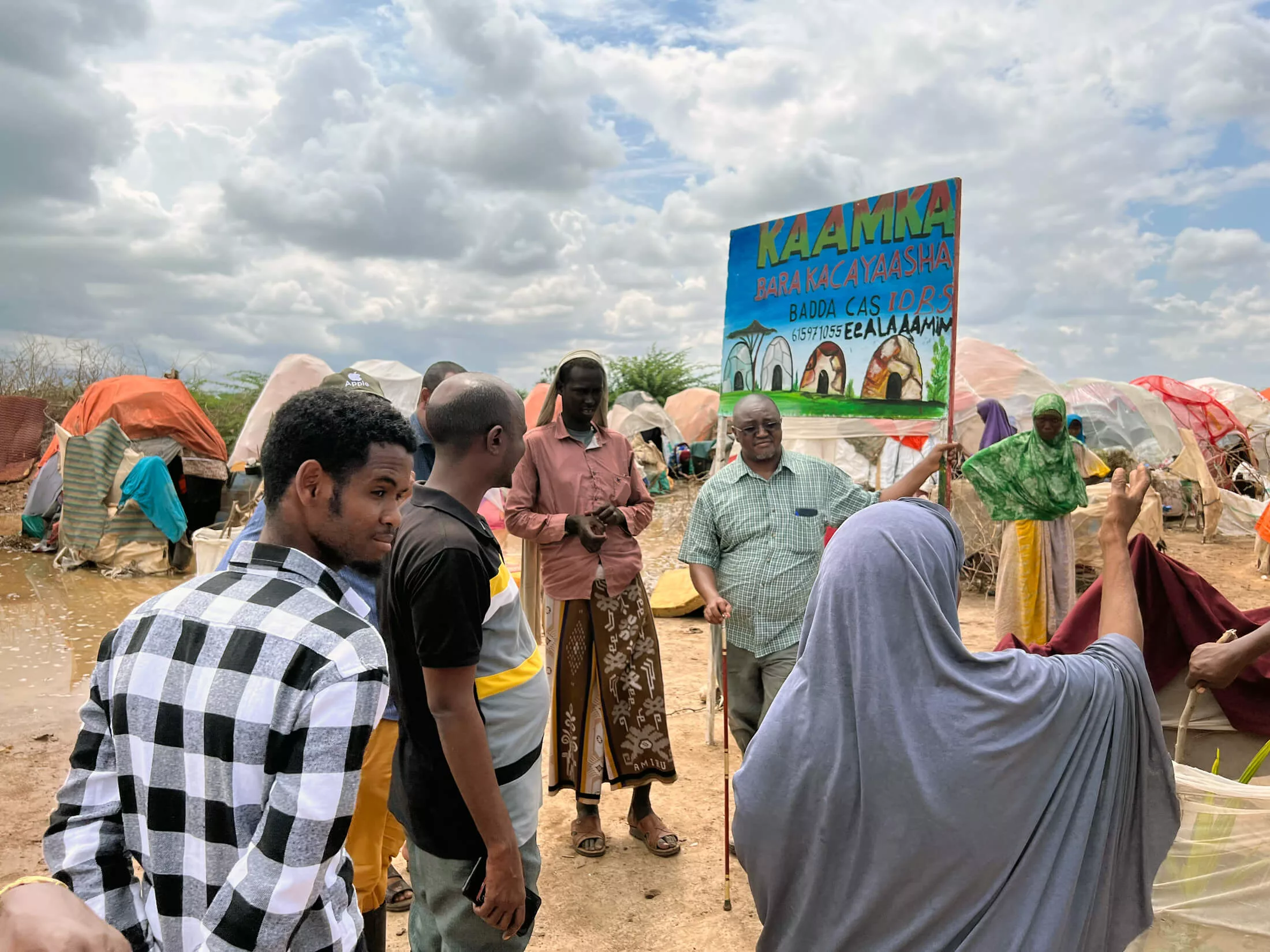
What are you working on now?
We are responding to the effects of just-ended El Niño flooding, hot on the heels of a devastating and long drought stretching for about three years with adverse consequences for the vulnerable population. Conditions in Somalia are extreme—when not experiencing drought, the country is battling floods. Floods come with population displacement and the destruction of infrastructure and livelihoods, but most heart-wrenching is the loss of lives and the associated suffering. We are seeing outbreaks of acute watery diarrhea and cholera and are responding to these, in addition to the regular emergency-response interventions.
Recently, I was also temporarily deployed to support our Libya mission. The team is doing incredibly impressive work under difficult circumstances, and their effort is evident, judging from the program data, community feedback and comments from the government. My work was mainly to support the team in implementing programs more quickly.
When it comes to your work at International Medical Corps, what are you most proud of?
Talking to beneficiaries in remote locations or in IDP [internally displaced persons] camps who are at a loss for words to voice their gratitude for the only health and nutrition services available to them—which come from International Medical Corps.
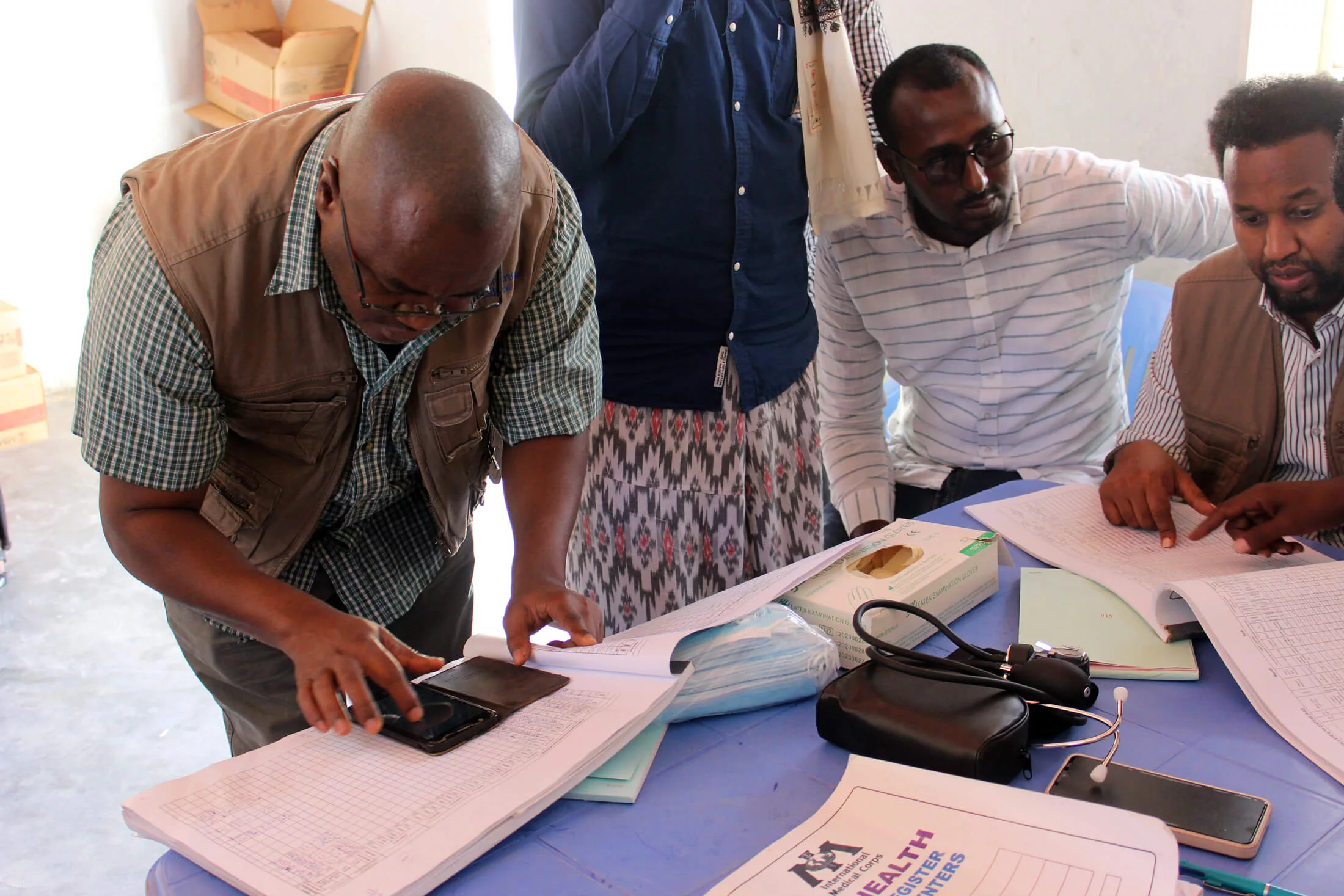
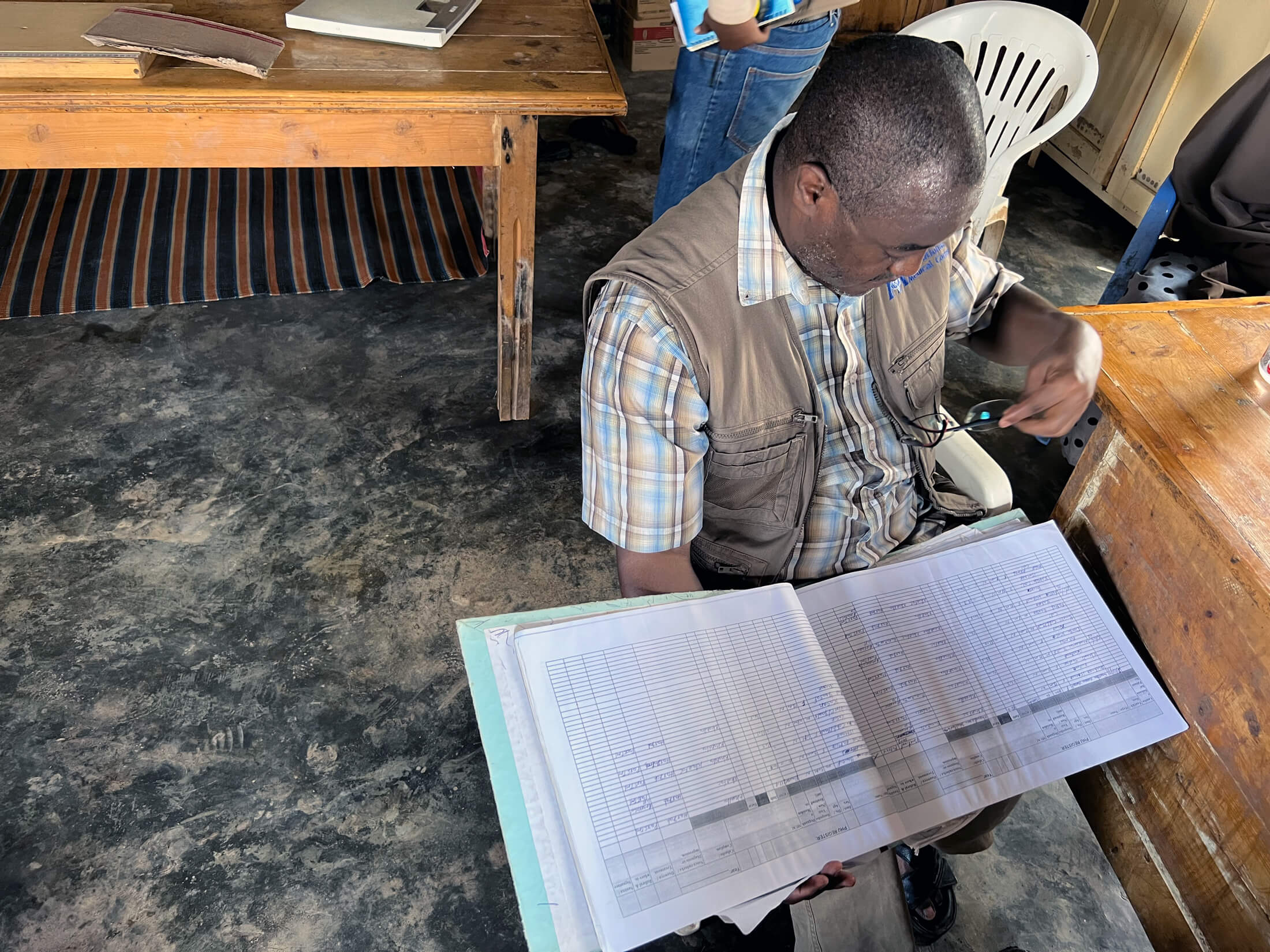
Tell us about a time you made a difference at International Medical Corps.
We made a decision to expand a medical mobile team into a district in a central region of Somalia for three months in early 2022. Since there was no other agency offering services in that area, we decided to also reopen a health center there that was greatly needed. Using their own resources, the community originally built Afbarwaqo Health Center to improve access to health services in this remote part of the Galmudug state of Somalia, but due to lack of funding, the community could not employ health workers or supply medical commodities to effectively run the facility.
When we began offering mobile health services in this area, it was meant to be a short-term emergency intervention, as the effects of the severe drought that was ravaging the country were starting to be felt. The expectation was that the drought situation would improve, but things got worse, and the funding was coming to an end. We continued to fundraise, and our efforts bore fruit. We got funding in July 2022 to not only continue with more mobile outreach teams but to run the health facility for 12 months, offering a full package of essential health services, including basic emergency obstetric and neonatal care services, outpatient consultations, routine immunization, nutrition screening/growth monitoring for children under 5, antenatal/postnatal care, medical care for gender-based violence survivors, mental health and psychosocial support consultations, and response to emergencies and disease outbreaks. The facility serves around 60 patients per day and has multiple mobile teams serving far-flung, hard-to-reach villages in its periphery. It gives me great joy to visit this facility that is 200 km (124 mi) from the nearest town and see the amazing work that our field teams are doing to alleviate suffering and bring hope to the vulnerable communities.
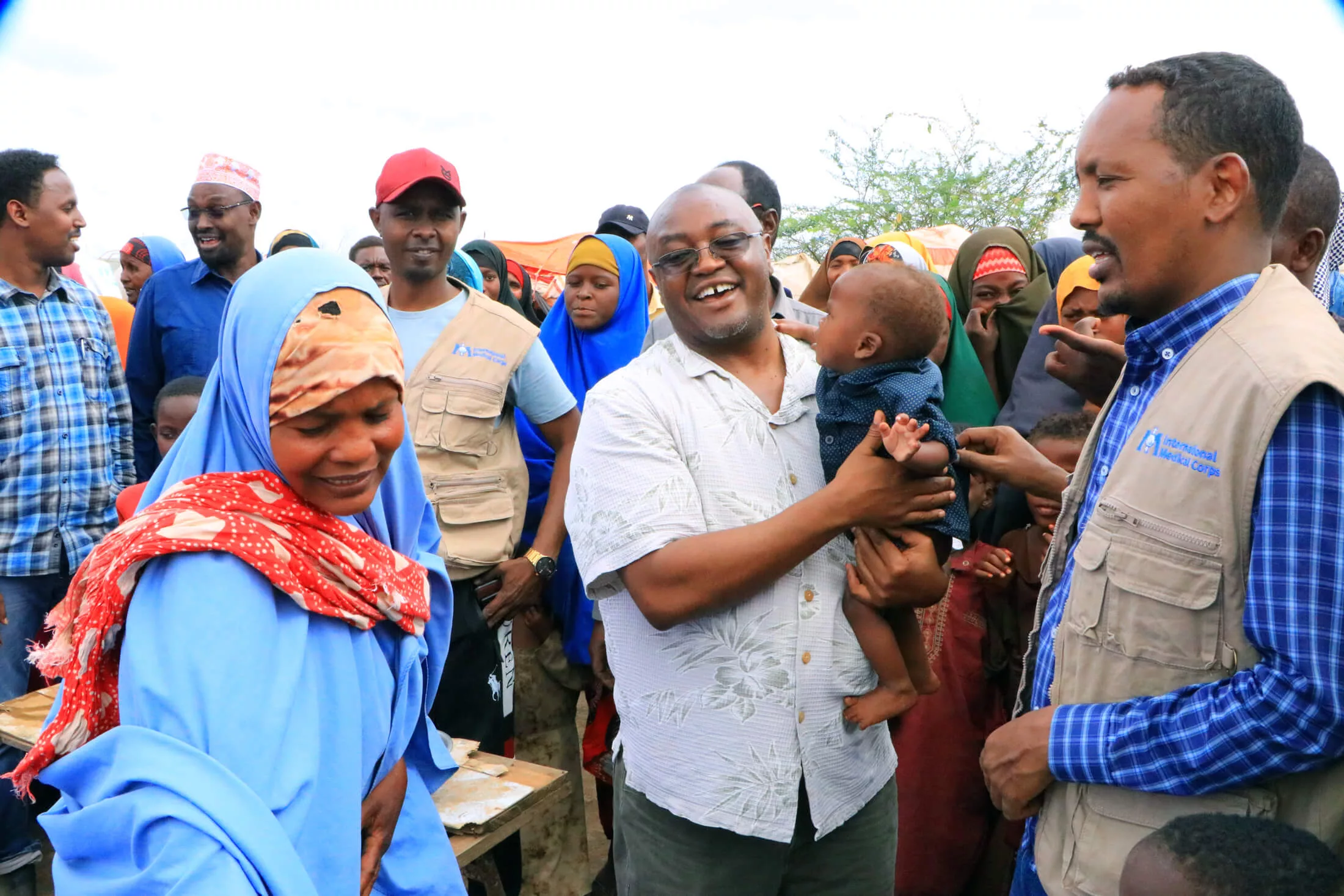
What have you learned at International Medical Corps?
International Medical Corps emphasizes a sense of duty in whatever we do. It has taught me to make every day count toward the people we serve—we are accountable to them.
